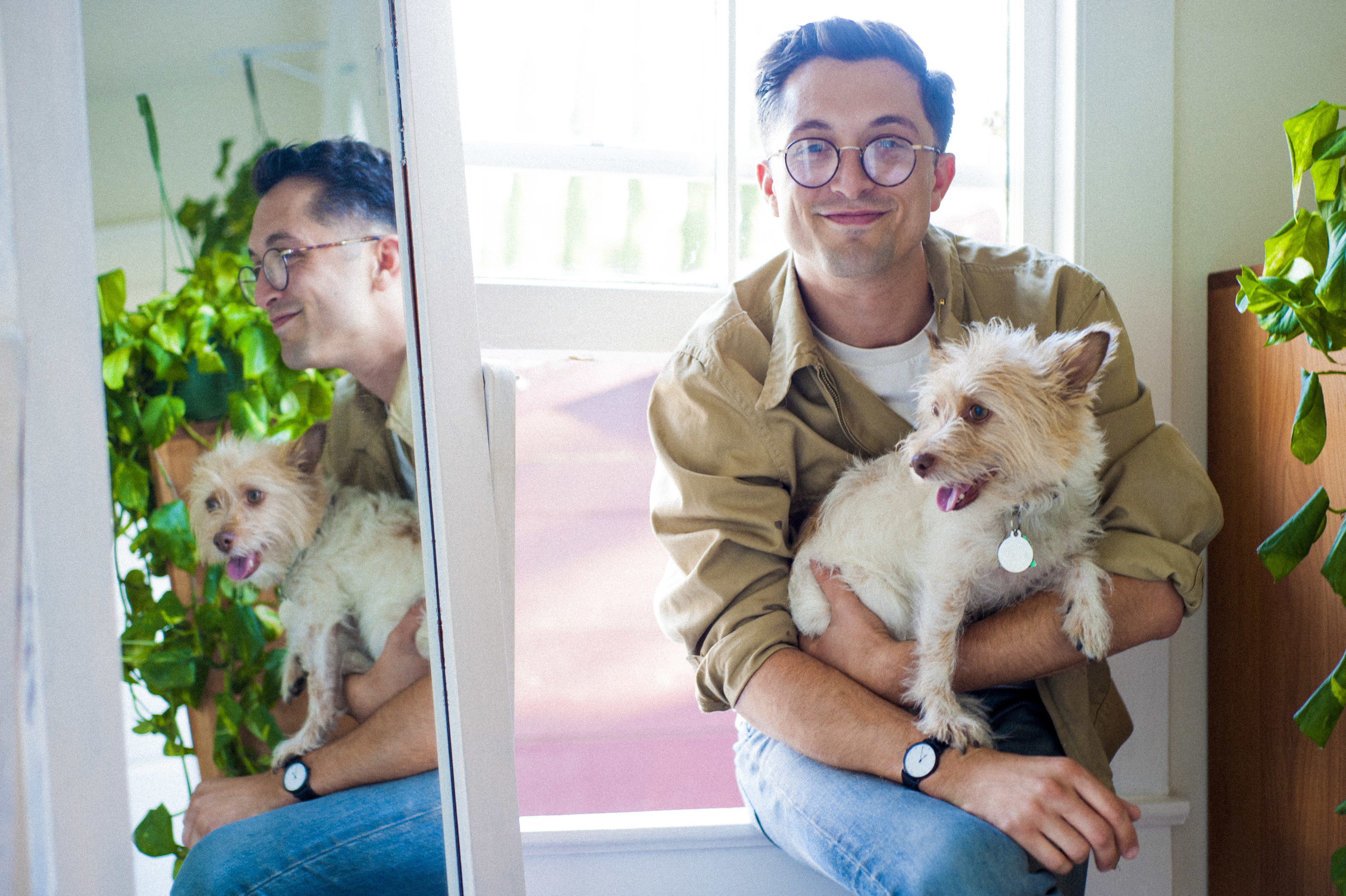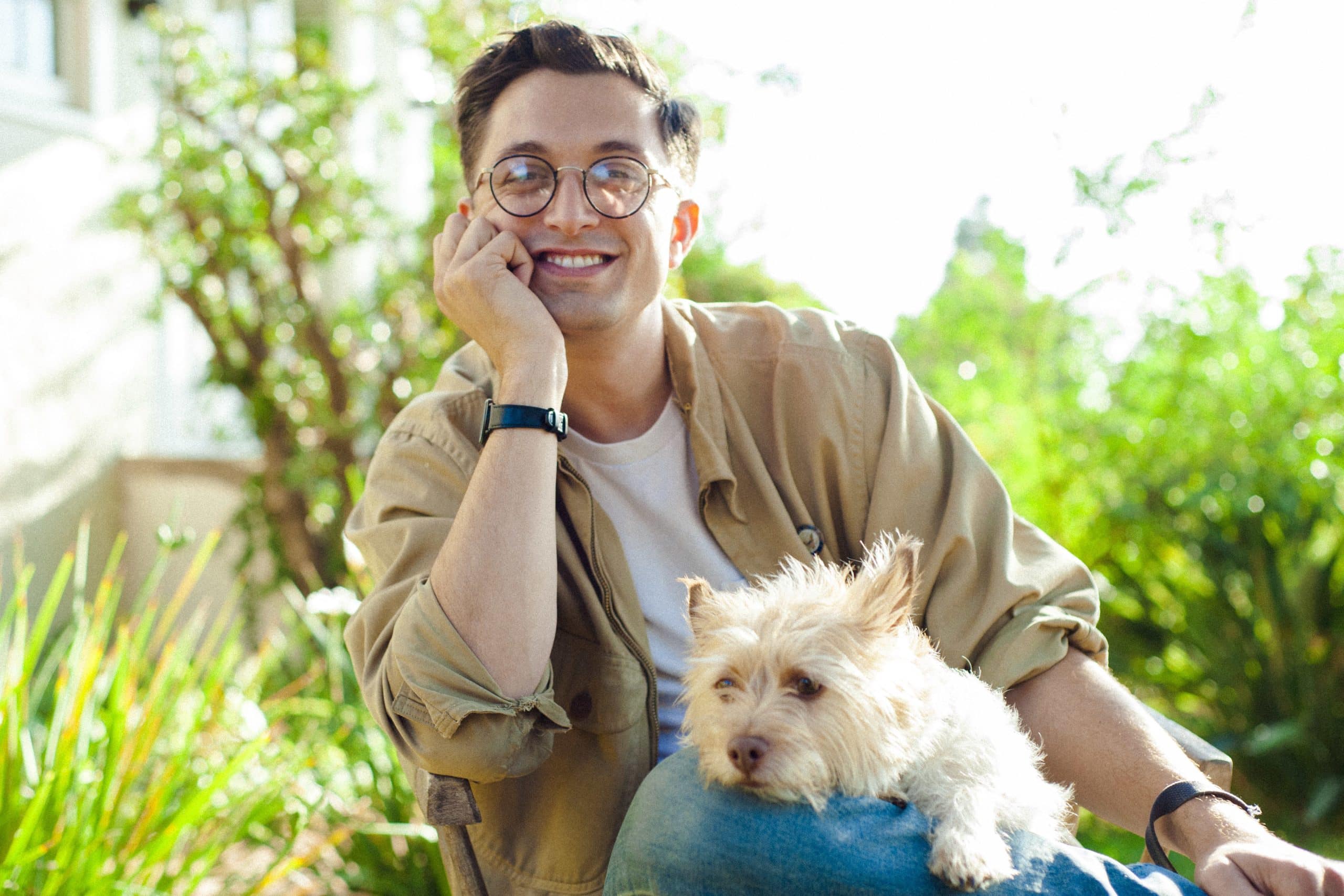Marcel the Shell, a stop-motion short about a snail, inspired several follow-up films and two children’s books in addition to racking up over 27 million hits on YouTube. When Marcel’s director and co-writer Dean Fleischer-Camp was searching for his next project, the answer was right in front of him: YouTube.
Pieced together from found YouTube footage, Fleischer-Camp’s new documentary Fraud tells the story of an average American family whose love of consumer culture spins out of control. Except it’s not really a documentary—the film’s plot is fictional.
Browsing through YouTube, Fleischer-Camp stumbled across over 100 hours of video shot by a middle-class American man documenting his family life. Inspired by the attention to detail he noticed in the footage, Fleischer-Camp began constructing a fictional narrative out of the videos. Fraud had a controversial premiere at Toronto’s Hot Docs festival this May, with audience members calling out Fleischer-Camp as a “liar” and “con artist” for creating a documentary with a narrative that’s only sort of real.
Audiences who know Fleischer-Camp for Marcel the Shell might be baffled by this even more surreal effort from the filmmaker, but anyone familiar with his web series Catherine will be less surprised.
Starring Marcel co-creator Jenny Slate, the actress and comedian from whom Fleischer-Camp recently split, Catherine is a quietly unsettling look into the daily happenings at a generic office. As with Fraud, in Catherine Fleischer-Camp manages to make the everyday feel deeply strange.
Although comparisons can be drawn between Fraud and Fleischer-Camp’s previous films, it still feels like a definite departure from his usual fare of strange, silly web-based films—but, at the same time, Fraud is literally made up of someone else’s strange and silly YouTube posts. Maybe the joke in this film is on us.
We caught up with Fleischer-Camp to find out more about the making of Fraud, his thoughts on internet privacy, and where his career is heading next.
All photos shot in LA by Mandy-Lyn
How did you first get into filmmaking?
I started making short films with high school friends. One was a parody of an Abbott & Costello routine. Another was about an arrogant bowling team. They weren’t very good, so I decided to go to film school.
Are there any other filmmakers or artists you’d say have influenced your work?
Right now I have a calendar of Alex Colville paintings on my wall. His work is calm and quotidian on the surface but somehow distantly unsettling. Restless in a way that feels vaguely mathematical? I don’t know any other way to describe it. He doesn’t influence me in a direct way, but I find that his work stimulates a favorite part of my brain. Relaxed-but-thoughtful is a great mental state to do creative work in, which is why people think of great ideas in the shower.
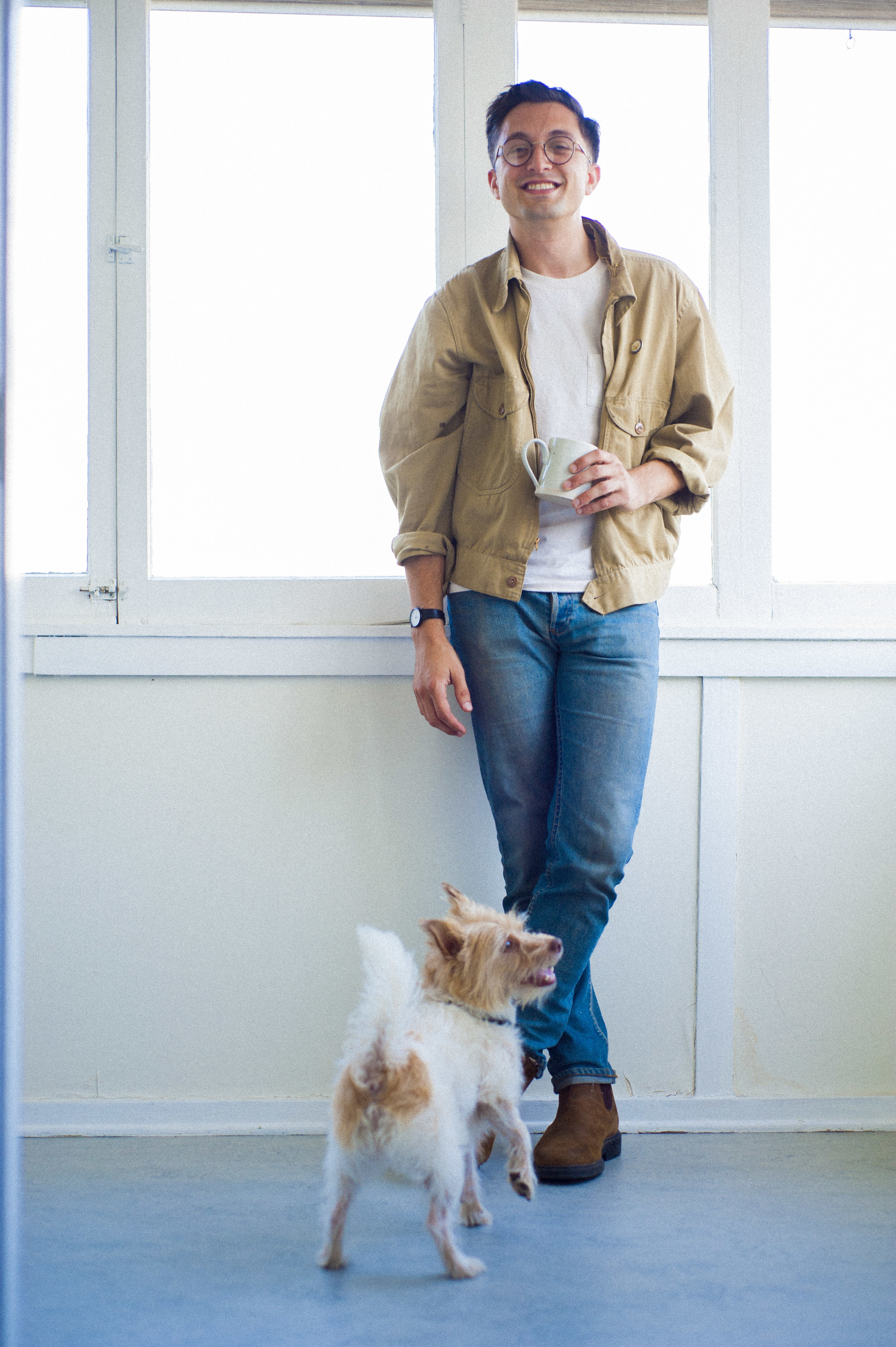
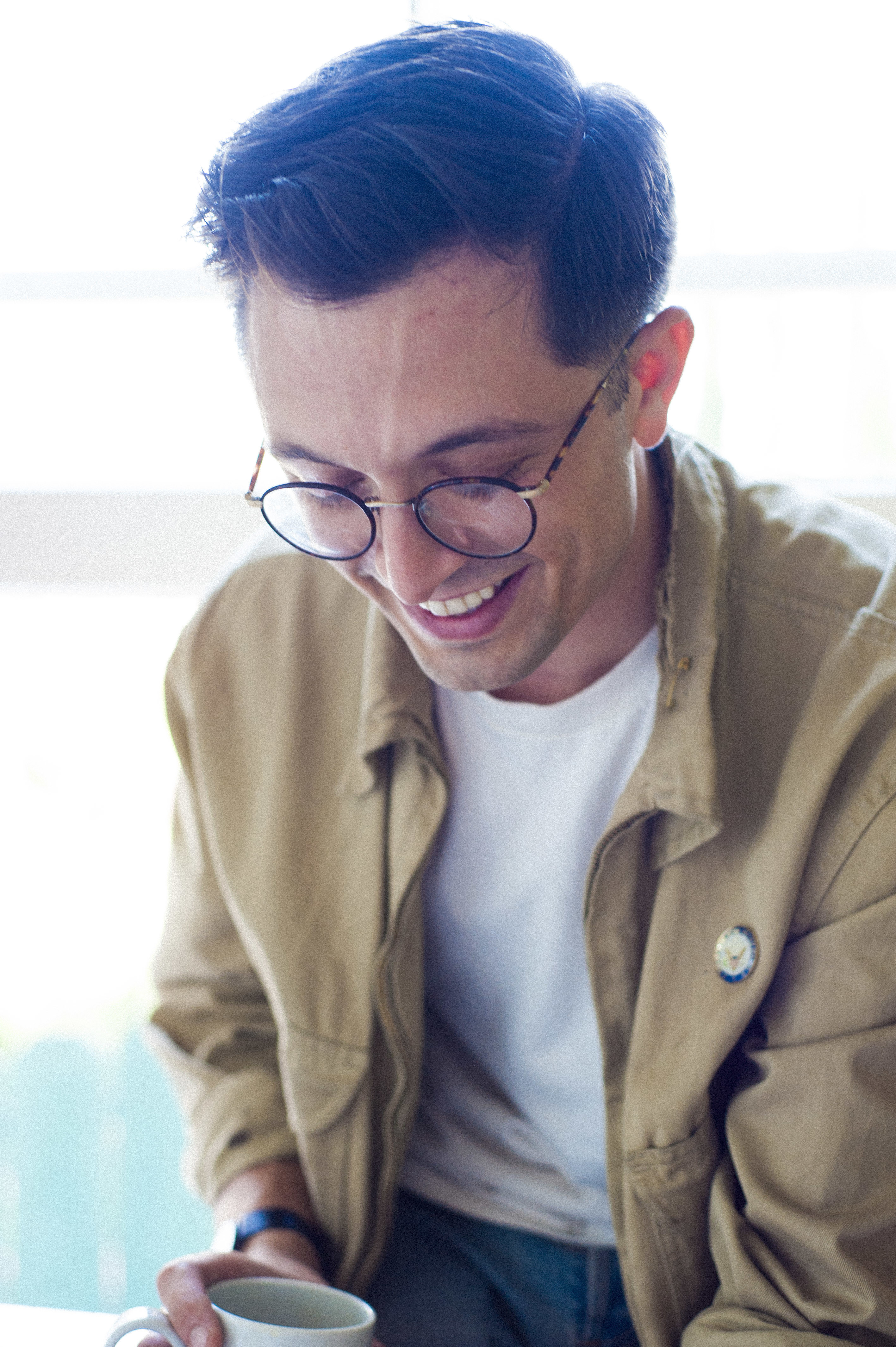
Your latest film, Fraud, is composed of found footage from YouTube. Were you planning to work on a piece using found footage before you came across those videos, or did the videos inspire the film?
The videos inspired the film. The footage is shot in an impressionistic style that I found interesting and which I thought would be helpful in telling a story because there are a lot of close ups, textures, details, etc. It’s very subjective shooting, so you get a vivid sense of the character behind the camera based on his choices.
What were the biggest challenges of creating a film out of anonymous YouTube clips?
Piecing together an actual story was the most difficult. Usually when you make a film, you sort of write the story down first and then shoot material that you think will be useful in telling that story. We did the opposite.
Did you ever try to get in touch with the family in the videos?
I got in touch early on, explained the concept and licensed the footage. But otherwise I kept our contact minimal because I didn’t want my personal relationship with them to color the way I viewed their footage.
How important is it that the film features an American family? Is Fraud is commenting on American culture?
I don’t think it’s important that they’re American. Cyclical consumptive patterns are happening all over the world. These characters could exist in many first- and second-world countries. I’m surprised at the extent to which people ascribe this to some sort of uniquely American attitude.
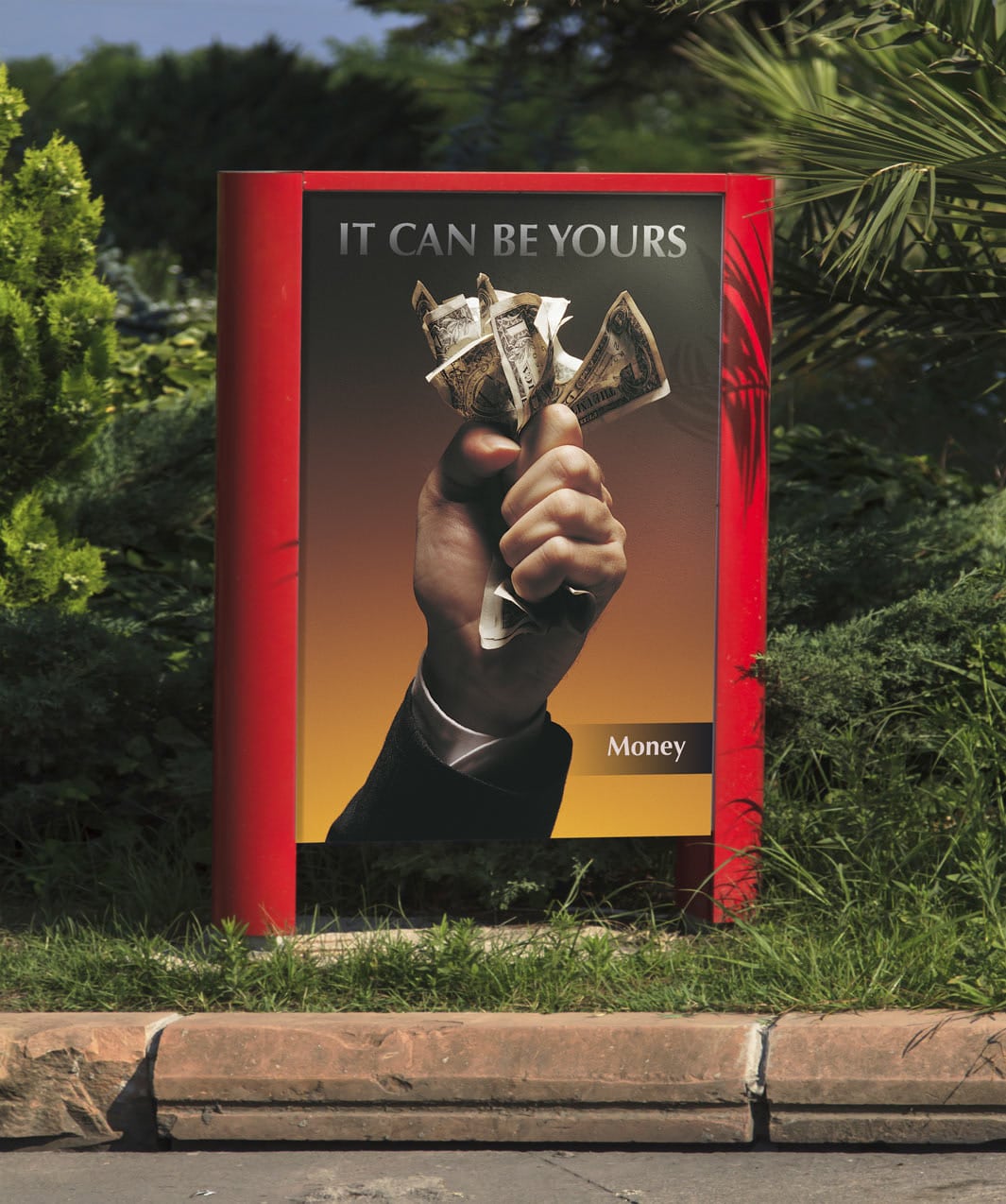
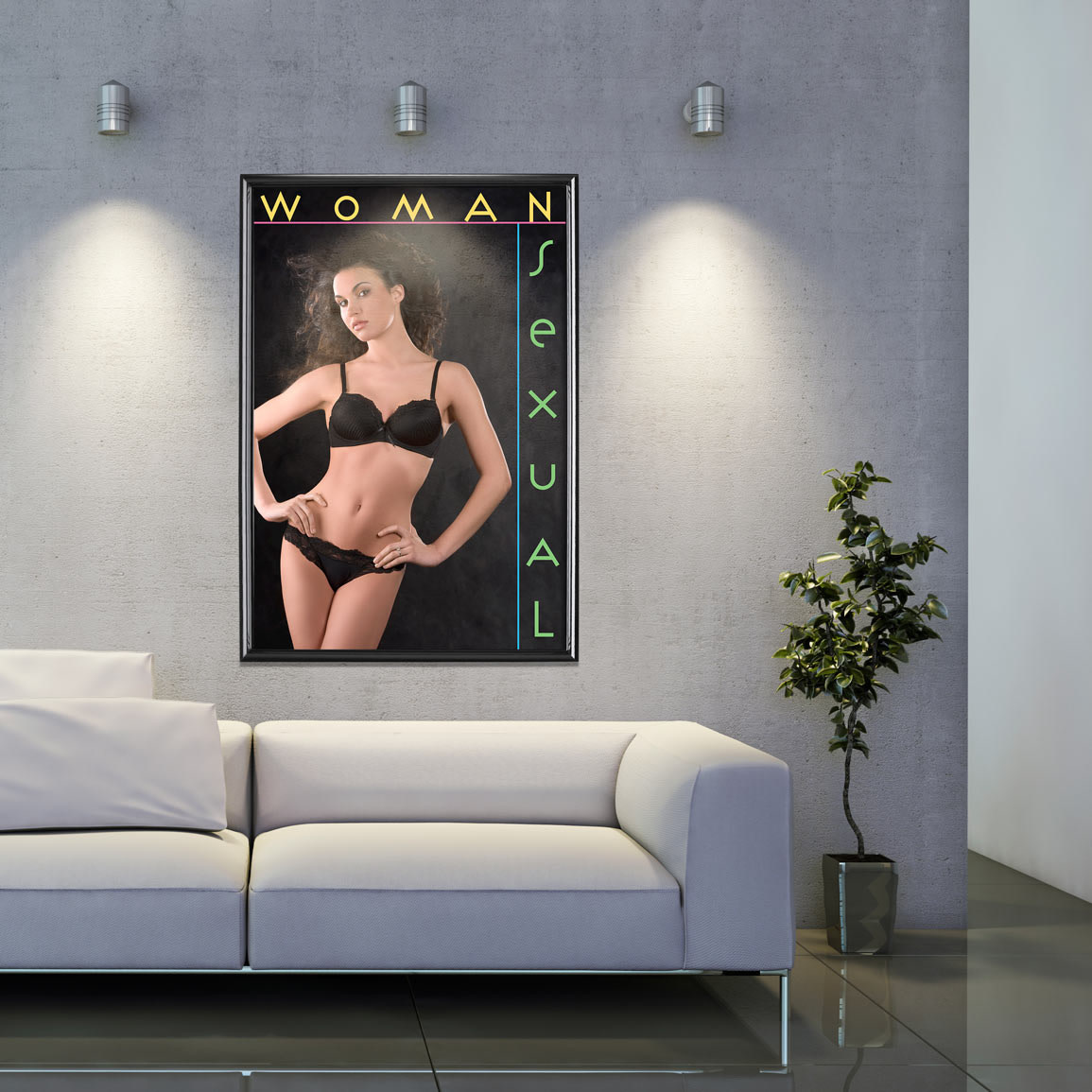
TOP Posters by Fleischer-Camp. Buy them here
There’s so much concern lately about how the Internet is going to bring about a total end of privacy. What are your thoughts on this?
I think most people understand that you don’t have a reasonable expectation of privacy when you post on YouTube, so it probably doesn’t apply here. But I agree that the internet might mean an end to a certain old-fashioned notion of privacy.
I don’t think it’s a bad thing, though! Think of it: in 25 years, when half the people you know have some leaked nudes floating around out there—your boss, your teacher, your mother—it will force us all to revise our ideas of what’s taboo, to become less prudish about our sexuality and our bodies. Who knows, maybe we will become more compassionate, too.
Let’s hope so! Fraud seems like a big change from your previous work. Do you feel like your career is going through a shift? Are you moving away from funny shorts and Marcel the Shell?
I hope my career is shifting! I don’t feel that I’m moving away from something, but I think it’s important for a director or artist to keep moving toward new and different things. I became interested in Fraud because I hadn’t made or even seen anything like it before.
I think anybody’s work is just their exuberances. That’s the only thing that unifies the different projects I’ve made—I was excited about all of them. It’s like a constellation: you can look at them from a distance and see a particular shape, but they’re really just separate dots.
Marcel has always been kind of an off-and-on project for me and Jenny. We’re beginning a feature length adaptation very soon though, so it’s not the last you’ve heard from him.
Marcel is so funny, but in such a weird way. I also find your web series Catherine really hilarious, but it has kind of a dark undertone to it too, because it’s so surreal. How does all this work tie together—how would you describe your sense of humor?
I don’t know how to describe my sense of humor. I’m drawn toward things that make me laugh in a new way, and that has lead me to sometimes experiment with tone or ideas that are a little formally unusual.
Seems like it’s working out pretty well so far! Finally, we love your dog—what’s his name?
My dog’s name is Arthur and I rescued him off the street two years ago! He was immediately so sweet and affectionate toward me. I feel so lucky. I keep waiting for him to steal my car.
